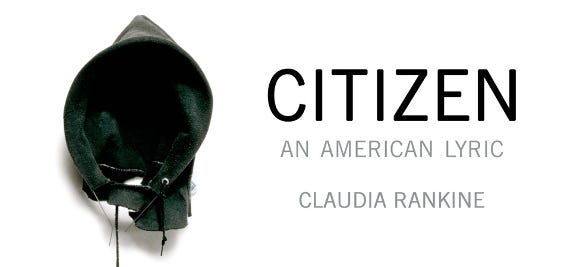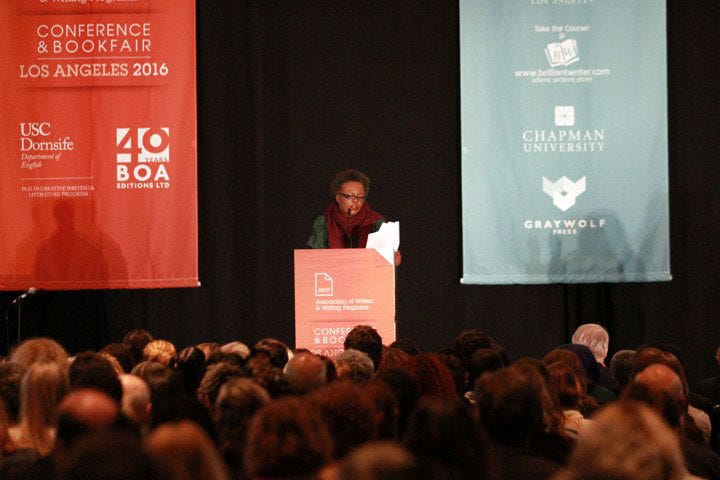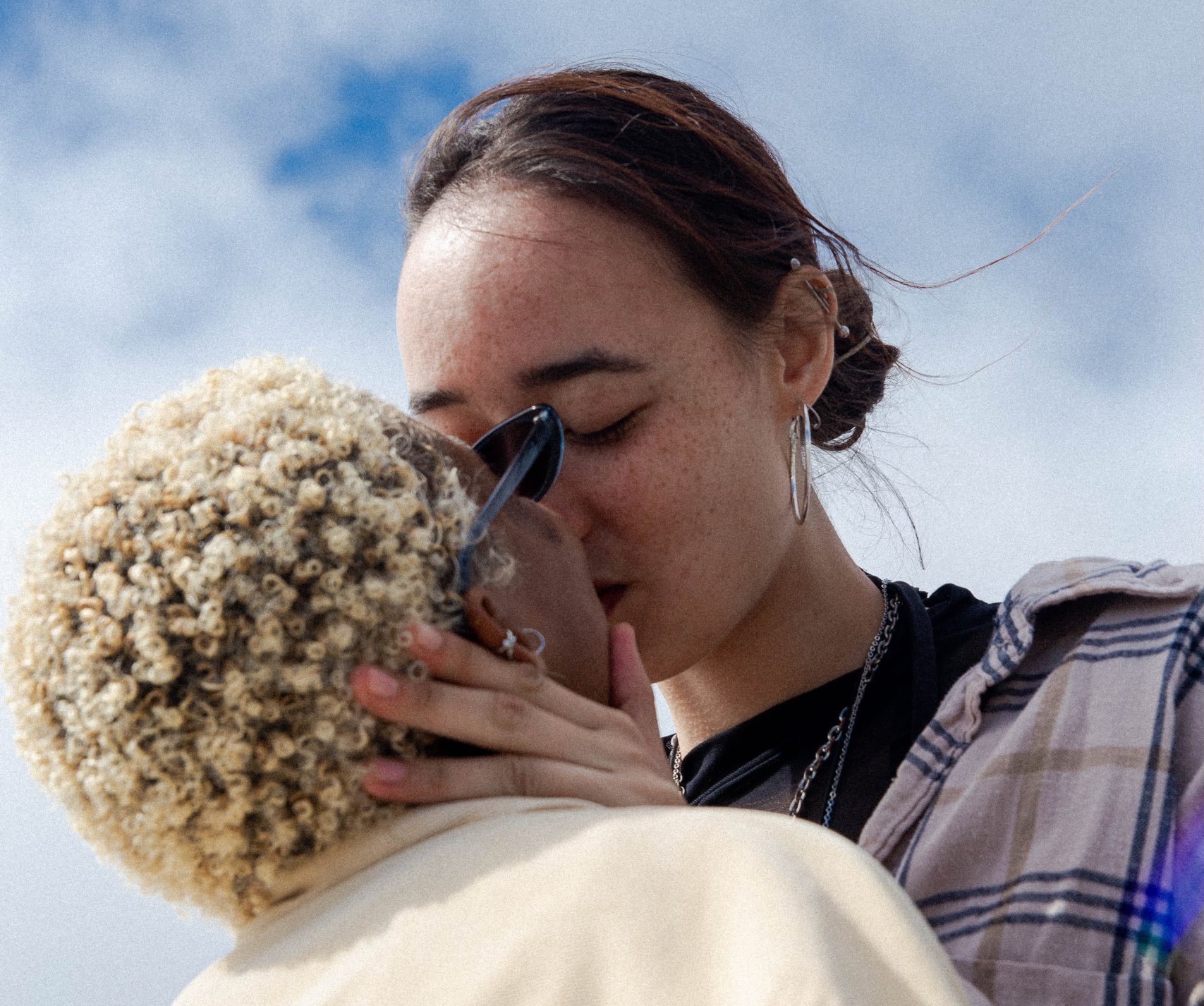Craft
What Did You Say?
Speaking up against hate when you’re sitting at the table

You’ve been at Bread Loaf Writer’s Workshop for a week now. You’ve almost gotten used to the overwhelming din in the dining room, doors slamming all night in the dorm, scores of new people, the hectic schedule of workshops, craft classes, readings, authors’ and agents’ and editors’ panels. You’ve settled in. You’re taking it all in stride. Then one night you’re part of a conversation that throws you off balance.
You’re eating dinner with your roommate and another woman. All three of you are white and upper middle class. All three of you are mothers with grown children. Your roommate is Jewish and you think the other woman is too, but you can’t remember whether she told you so. Six months later, you can’t remember very much about the two women. All you can remember is your moment of shocked surprise.
Before you can say how moving you found the essay, your dinner companion lowers her voice to say in a confidential tone, “I just didn’t think it was appropriate. That’s their problem.”
That afternoon there’s been a reading, one of many. An African American writer read a poignant, affecting essay about his regret over not being there while his daughter was growing up. Before you can say how moving you found the essay, your dinner companion lowers her voice to say in a confidential tone, “I just didn’t think it was appropriate. I mean really. That’s their problem, and it’s a big problem for them, but we shouldn’t have to hear about it. They’re the ones who need to hear it, not us.”
Did she really just say that? Your heart beats faster. You have trouble catching your breath.
Your first thought, almost irrelevant, is that you expected better of writers, though why writers should be more enlightened than any other citizens you don’t know. You just expected it. Maybe you expected better of someone who’s obviously well educated. And of someone who’s probably experienced sexism, and possibly anti-Semitism as well.
An ugly chasm yawns. No longer “we writers.” A different “us” and “them.”
Six months after Bread Loaf, re-reading Claudia Rankine’s Citizen: An American Lyric for a class you’re going to teach, you find words for your mixed feelings at that moment. “What did you say?” Rankine asks. “Is she really saying that? Is he really saying that?” Or rather Rankine’s “you” asks herself, himself, our selves. “Did I hear what I think I heard? Did that just come out of my mouth, his mouth, your mouth?”
You felt it, even when it wasn’t directed at you.
Could you call this a microaggression when the victim of the comment wasn’t present? You felt it, even when it wasn’t directed at you. Your body shut down for a moment, your brain went into overdrive, you were at a loss for words.
What are the effects of racist microaggressions on absent bodies, present bodies? On his body, her body, your body, our bodies?
Our body politic?
You’ve designed your winter quarter course on Ethnic American Women’s Literature, photocopied your syllabus, but you still don’t know what you’re doing on the first day. Usually you ask the students to read something short in class and discuss it, but you haven’t found the right text for this year’s group of books, which will include Rankine’s Citizen. Maybe you’ll just go over the syllabus and send them on their way. And then the morning of the first class you read Nicole Chung’s “What Goes Through Your Mind: On Nice Parties and Casual Racism” in The Toast. There’s no time to order copies from the university Copy Center, so you slip into the literary magazine office, shoving aside boxes of supplies and old files, and make copies on the English department’s small photocopy machine. You’re not really supposed to be doing twenty-five copies of a multi-page handout on this machine, but you decide it’s worth breaking the rules.

Chung writes about a casually racist comment from a visitor at a family dinner, and what goes through her mind at the moment when she has to decide how to respond. It’s an interesting, well-written essay. It will be good preparation for reading Rankine later.
A memory from long ago, when you were living somewhere else in California. You’re having dinner with your college friend’s sister, a Brown-educated blue blood. She’s married to a techie, also a Brown grad, and they used to live in San Diego but have moved to Boston. They’ve rented an enormous RV for a vacation on the West Coast, and have stopped by for the night.
“I never liked San Diego,” she tells you. Then she lowers her voice as if someone might overhear, though you’re eating at a picnic table in your sheltered back yard. “There were too many Mexicans.”
Apparently your Mexican-American husband sitting right there next to you is invisible.
Apparently your Mexican-American husband sitting right there next to you is invisible. Or was that one of those backhanded compliments, an unvoiced “I can say this because I don’t really think of you as Mexican”?
It’s dark outside and the darkness has heightened your senses. You smell the fragrance of the roses lining the patio. Hear the crickets chirping. You watch the candle guttering and wonder if you should go inside to get another one.
“People say things like that all the time,” your husband says later. “I spend my whole life just waiting for someone to make a comment about Mexicans. Hoping they won’t. Knowing it’s bound to happen again sooner or later.”
Chung is at a large holiday dinner at her in-laws’ when the conversation turns to the new TV show Fresh Off the Boat. A visitor she doesn’t know says to her, “Do people ever tell you that you look just like everyone on that show?” Chung stares.
“This question strikes me as so bizarre,” Chung writes, “so beside the point, that at first I think I’ve misheard. ‘Excuse me?’ I wait for her to clarify, change course. She repeats her question. She appears to be perfectly serious. ‘You must get this a lot,’ she adds, when I don’t immediately respond. Oh? Oh. Yes, people often tell me that I look just like ‘everyone’ on a television show, even though most of them aren’t women. Or my age. Sure. That happens all the time.”
Yes, people often tell me that I look just like “everyone” on a television show, even though most of them aren’t women. Or my age.
She doesn’t say that. She’s not sure what to say. Has everyone heard? Will she ruin her in-laws’ dinner party if she speaks up? Embarrass the white people? Does she want to speak up in front of her children, when they don’t seem to have noticed? A week later she’s still running through the “same agonizing, silent calculus,” all of the variables affecting her hypothetical responses.
Your husband comes home from the supermarket, where he ran into a colleague from the university where you both teach. You’re unpacking groceries together. “Every time I see him,” your husband tells you, “every time, he puts on this big greeting. Esteban, he says, loud, looking around for approval, because he’s down with it, and then he throws some Spanish my way, though I barely speak Spanish. So okay, that’s what he does. I’m used to it. But some time I’d like to say, That’s. Not. My. Fucking. Name.”
Your students like Chung’s essay. They talk about recent representations of ethnic groups on TV. They talk about casual racism. “People say stuff like that all the time, I mean all the time,” a student says. “You just get used to it. ‘You don’t really sound black,’ they’ll say. Or, ‘Wow, you’re good in math for an African American.’ ‘I guess you got that scholarship because you’re, you know. Lucky you.’”
Lots of heads nodding. They’ve heard it too. There are more students of color in the room than white students. Everyone’s talking to each other. They all know what this is about.
When you read Citizen later in the quarter, they all understand Rankine. A student brings up the term “racist microaggressions” before you do. There are ways in which your students teach your classes. Over the years, they’ve taught you as much as you’ve taught them.
You don’t just get used to it, Rankine says. Memories are stored in the body until there’s no more room to store them.
“How to care for the injured body, / the kind of body that can’t hold / the content it is living?”
Later in the quarter you’re going to talk about two very different uses of the second person, in Rankine’s book and in Jamaica Kincaid’s angry diatribe against tourists and slave-owning imperialists, A Small Place. Despite the title, Chung writes “What Goes Through Your Mind” in the first person. She uses “we” and “our” late in the essay to refer to fellow people of color. Her only “you” addresses the reader of the essay. “Everyone likes to believe they would be the one to stand up for someone or call out racism in a crowd,” Chung says. “But not only am I not always that person, under a variety of circumstances you probably wouldn’t be, either.”
The tone of the essay is markedly non-confrontational, the “you” is subtle. You conclude it could be all of these groups, which is not the same as appealing to a “universal” audience.
You and the students talk about that. Who’s her implied audience? Other people of color who’ve been subject to remarks like the visitor’s? Other people of color who’ve witnessed remarks like the visitor’s? White people who’ve witnessed remarks like the visitor’s? Chung refers to “well-meaning liberals and white allies” at the dinner party, “in other words, people who don’t see me as a chink, a robot or a walking stereotype; people who know and genuinely care about me as an individual.” White people who’ve made remarks like the visitor’s? Chung imagines that the woman’s “slight was likely unintentional, not a deliberate means of putting me in my place.”
The tone of the essay is markedly non-confrontational, the “you” is subtle. You conclude it could be all of these groups, which is not the same as appealing to a “universal” audience. Depending on their positioning and past experience, each reader will take something else away.
At a Bread Loaf craft class on beginnings in nonfiction, you heard the opening page of the dinner companion’s memoir about her anorexic daughter. As she made her comments at dinner, you wondered whether she imagined her own audience as universal, and the African-American essayist’s as limited by race. Or whether she imagined her audience as confined to affluent, middle-aged women with anorexic, overachieving daughters. Probably not.
What did you say? None of this.
There was a lot going through your mind all at once in the Bread Loaf dining room. You remember confusedly thinking about audience, and whether the whole point of reading is to learn about people and places and experiences unlike your own. And thinking the opposite. That absentee fathers are a fairly universal phenomenon in the United States, where 50% of marriages end in divorce, and many readers would be familiar with the writer’s experiences and identify with his feelings. Did the woman at the dinner table say absentee fathers, or did you fill that in? You were thinking that a woman of her generation, your generation, might have been remembering the largely discredited and certainly outdated Moynihan report when she considered absentee fathers an African American problem. You were thinking that was no excuse. You were thinking that the essay wasn’t intended to “teach” anybody anything. That art doesn’t teach.
What did you say? None of this.
Later you reconsider your premise that art doesn’t teach. The African-American writer’s essay wasn’t didactic. It wasn’t issue-centered. It was an emotional account of personal experience. But of course art can teach. Chung’s essay teaches, Rankine’s Citizen teaches, if making readers aware is a kind of teaching, and it is. After showing how the accumulation of racist microaggressions can produce a meltdown like Serena Williams’ at the 2009 Women’s Open Final, Rankine ends the book with her own experience in a parking lot by the courts where she plays tennis. She’s sitting in her car, “waiting … for time to pass.” (Will these times pass?) A woman parks facing her, and when she sees Rankine sitting in the car, chooses to move her car to another spot in the lot.
“Did you win?” her husband asks her later. But she didn’t play, she explains. “It wasn’t a match, I say. It was a lesson.”
For your discussion of Citizen, you hand out Tony Hoagland’s poem about Venus Williams (“that big black girl from Alabama, / cornrowed hair and Zulu bangles on her arms, / some outrageous name like Vondella Aphrodite”), along with Rankine’s lecture about the poem at the 2011 AWP conference for writers. Hoagland’s speaker in “The Change” (is this really a persona poem, the speaker not Hoagland?) chooses to identify with Venus’s white European opponent in the match on the airport TV:
because she was one of my kind, my tribe
with her pale eyes and thin lips
and because the black girl was so big
and so black,
so unintimidated,
hitting the ball like she was driving the Emancipation Proclamation
down Abraham Lincoln’s throat,
like she wasn’t asking anyone’s permission.
The poem wasn’t meant for you, he told Rankine, when she questioned the racial politics of the poem. It was meant for white people.
“Did he mean it was for white people to see themselves and their thinking?” Rankine asked her audience at AWP in 2011. “He did not say that. He said it was for white people.”

One thing is clear. Hoagland’s speaker is intimidated by the black tennis player, so large that “the little pink judge / had to climb up on a box / to put the ribbon on her neck.” He’s witnessed a profound change in society, and feels cowed and ambivalent. “She’s an empowered woman,” a white male in your class says. “An empowered black woman. He’s afraid of that.”
Citizen haunts you, as it’s meant to haunt all of us. Your memory of the conversation at Bread Loaf keeps returning to haunt you. There was so much noise in the dining room. A Babel of voices. It was hard to hear your neighbor, much less anyone else. The woman leaned forward and half whispered. Was it because she didn’t want the African-American author of the essay, or one of his friends, to overhear? Or because she knew what she was saying could be considered racist? Or knew that it was racist? Was it a “just between us” comment intended only for white people? She seemed to assume that all three of us, white middle-aged women, would agree. She imagined that all three of us shared some unspoken secret accord.
What did you say?
You could have said that to her. Just asked, “What did you say?” Maybe in a neutral tone. Or with a hint of mild remonstration. Or open disbelief. Or challenge. “Even if our options aren’t stellar when we’re hit with ‘casual racism’ in a space we once thought safe,” Chung observes, “we can and do make some sort of choice every time — to inform or ignore, challenge or absolve.”
You could have said that to her. Just asked, “What did you say?” Maybe in a neutral tone. Or with a hint of mild remonstration. Or open disbelief. Or challenge.
What did you say?
You didn’t nod. You didn’t agree. You didn’t disagree. You didn’t say anything.
Was it shock, or dismay, or misplaced politeness, or cowardice, or confusion that kept you quiet? You can acknowledge now what you already knew then, at least when you turned the conversation over in your mind as you left the dining room. By remaining at the table you became more than a witness. You became a participant, albeit a silent participant.
It wasn’t dark yet when you walked back to your room. The Bread Loaf campus was bathed in the golden light that precedes sunset. The air was fresh, and smelled of newly cut grass. Someone was playing a guitar under a green, leafy tree and writers were already assembling outside the auditorium for that night’s reading.
Vanessa Mártir, a writer you know through Facebook, is attending the winter Tin House writers’ workshop and posts an account of her experience on her blog. She remarks on how few writers of color there are at the workshop. She’s annoyed and defensive when another student is put off by the Spanish in her essay. (I picture a white middle-aged woman. I picture the woman at Bread Loaf in fact.) She talks about the encouragement of Dorothy Allison, and of Lacy Johnson, her white teacher. She tells a story about Claudia Rankine that Lacy Johnson told them.
“Lacy said she’s been trying to make up for her silence at that moment ever since.”
“Lacy Johnson was in the room with her then professor Claudia Rankine when an invited tenured white male professor (she never named him but if you know anything about what happened at AWP back in 2011, you know it was Tony Hoagland) was taken to task for his clearly racist poetry, specifically his 2002 poem ‘The Change.’ Lacy said he started screaming as soon as the word racist was uttered. He yelled at his junior colleague, Claudia Rankine, telling her she didn’t need to understand his poem because it was ‘for white people.’ He told a student to ‘shut up’ and didn’t stop yelling until he left the room. Lacy confessed she said nothing. She stood there, in horror, as this tenured white professor yelled, wielding his privilege in the way that he knew he could. When Tony finally stormed out, the only other African American in the room, a student, turned to Lacy, who apparently claimed herself an ally then, and yelled, ‘Where the fuck were you? Where. The. Fuck. Were. You?’ Lacy said she’s been trying to make up for her silence at that moment ever since.”
Rankine will be reading this quarter at a nearby private college. You list the reading on the syllabus, and encourage your students to go. A friend of yours, a Chicana with a BA from your university and an MFA from the private college, tells you that they cancelled the informal reading group of staff and faculty that was going to meet in advance of Rankine’s reading to talk about the book. “We don’t have the words…” was what someone explained, as if all of them would understand that.
You’re surprised. You’re sure your students won’t be at a loss for words when they read Rankine. And they aren’t.
A memory surfaces. You’re a brand new, thirty-something junior faculty member. The composition textbook you’re using in Advanced Expository Writing includes Brent Staples’ “‘Just Walk On By’: A Black Man Ponders His Power to Alter Public Space.” What could be more relevant to these mostly urban students who’ve lived all the roles in the essay? You even have a cop taking the class. You know you should teach Staples’ essay. It’s insightful, beautifully written, beautifully structured. But you’re terrified. You have no idea what it will be like to talk about race in a diverse classroom.
You have no idea what it will be like to talk about race in a diverse classroom.
It’s been over twenty years. You can’t remember now why you were so terrified. Maybe because you didn’t want to set yourself up as an expert about something the students knew more about than you. Maybe because you weren’t used to talking about race. You’ve learned that you don’t have to be that kind of expert to teach a text, that exchanges in the classroom are more genuine when you don’t have the answers to all your questions. You don’t remember what it was like to teach the essay for the first time. In the end you taught the essay many times. The dialogue in your classes, which included many African Americans and Latinos, was always productive. You considered tone and diction. You considered audience. You compared the essay to Staples’ very different account of encounters on the street in his memoir Parallel Time. Students wrote good analyses of the essay.
The comments in the classroom from students of color stay with you.
“Women cross the street when they see you. You get used to it. You kind of understand it. Oakland’s not safe.”
“I can’t tell you how many times I’ve been stopped by the cops. One time they had me spread-eagled on the ground in front of the BART station because I’d pulled into the No Parking zone to drop off a friend. I started crying I was so scared. People were walking by. Nobody did nothing.”
“So I’m on my way home from work, and I’m tired, you know. I wear heels at work and my feet are hurting. And I’m walking up the stairs at the BART and I brush against this woman and she grabs her purse away like I’m about to steal it. Shit, I just wanted to go home, same as her.”
You’re in the bedroom, both folding laundry, when you ask your husband if he remembers the visitor’s comment about too many Mexicans in San Diego.
“I remember,” he says. “I remember you got mad at me later.”
“About what?”
“You said you couldn’t be friends with her because I felt uncomfortable around her.”
You don’t remember this at all. Did you really say that?
“The body has memory,” Rankine writes. “You can’t put the past behind you. It’s buried in you; it’s turned your flesh into its own cupboard.”
What you’ve said or done and forgotten. What you’ve said or done and never forgotten. What you’ve overheard. What’s been said to you. To him.
His memories, your memories, our memories.
Her mouth, your mouth, my mouth.
Even though you didn’t say it. Even though the woman’s reaction to the African-American father’s essay about his daughter wasn’t your reaction at all. Even though you’ve taught for years at a public university where students of color are in the majority, and you’ve heard so many stories. Even though you teach ethnic American literature, and you’ve read so many stories. Even though you grew up Irish American with a chip on your shoulder about ethnicity and class. Even though.
Even though you grew up Irish American with a chip on your shoulder about ethnicity and class. Even though.
You’re white, you’re privileged, you’ve probably been similarly obtuse in other situations. After all, the white woman at Bread Loaf believed you’d sympathize. Probably believes you shared her opinion, if she thinks about it at all.
What did you say?
Something you’ve never forgotten, and you’re sure your husband hasn’t either.
The time your brother, drunk, remarked to your husband on the phone: “You know how Dad feels about Jackie marrying a Mexican. He wanted an Ivy League brain surgeon or something.” Later your husband said, his tone bitter, “You can graduate from an Ivy League university, but you’re still just a Mexican.” You didn’t know what to say. Racism is part of your family’s dysfunction. Yeah, that’s what your father thinks. Your brother too. He’s white, he didn’t finish college, he’s a Midwest Republican, you’re pretty sure he’s voting Tea Party these days.
What do you say to your son about his grandfather, his uncle?
You’ve been thinking about white liberal guilt, and how guilt might not be a bad thing as long as it’s not all about the white liberal. A start to dialogue, not a monologue. An agent for change. White liberal guilt can be an acknowledgment: I’m implicated. But often it’s the opposite — a defensive disclaimer and expression of wounded feelings: I’m a helpless representative of something I’m an exception to. Maybe self-pity and self-congratulation are always features of white liberal guilt.
White liberal guilt can be an acknowledgment: I’m implicated. But often it’s the opposite — a defensive disclaimer and expression of wounded feelings: I’m a helpless representative of something I’m an exception to.
In his widely circulated lay sermon after nine African Americans were massacred in a Charleston church, John Metta spoke of his reluctance to open interracial dialogue in the face of white people’s sensitivity to charges of racism. He told white churchgoers that “people are dying not because individuals are racist, but because individuals are helping support a racist system by wanting to protect their own non-racist self beliefs.” White liberals are more invested in proclaiming their own “individual and personal goodness” than admitting the pernicious effects of systemic racism.
“I’m going to try to speak kindly,” Metta says in “I, Racist,” “but that’s gonna be hard. Because it’s getting harder and harder for me to think about the protection of White people’s feelings when White people don’t seem to care at all about the loss of so many Black lives.”
“I don’t know how to end what doesn’t have an ending,” Rankine says. Will there be an ending? So much history. So many buried memories. So many buried bodies. Citizen includes elegies for Trayvon Martin. The victims of Hurricane Katrina. James Craig Anderson. Mark Duggan. Jordan Russell Davis. The names in the headlines continue to mount.
Citizen was published before Michael Brown was killed in Ferguson, before the deaths of hundreds more. (According to The Guardian’s ongoing site “The Counted,” 294 black men were killed by the police in 2015, 128 and counting in 2016 when Philando Castile and Alton Sterling were killed.) In an article in the New York Times, Rankine quoted the mother of a black son after the shootings in Charleston: “The condition of black life is one of mourning.”
“For her,” Rankine wrote, “mourning lived in real time inside her and her son’s reality: At any moment she might lose her reason for living. Though the white liberal imagination likes to feel temporarily bad about black suffering, there really is no mode of empathy that can replicate the daily strain of knowing that as a black person you can be killed for simply being black.”
What if you Good Samaritans were to speak up before the victim’s body was “beaten and bloody”? he asked. What if you didn’t wait until it was “so obvious”?
Metta reminded his listeners of their shared responsibility in the face of injustice. “Speak up. Don’t let it slide. Don’t stand watching in silence,” he told the all white congregation at his church in Washington State. What if you Good Samaritans were to speak up before the victim’s body was “beaten and bloody”? he asked. What if you didn’t wait until it was “so obvious”? What if you were to recognize racism as systemic and not individual, and acknowledge that “White people, every single one of you, are complicit in this racism because you benefit directly from it”?
Rankine ends with that early morning tennis lesson, a sunrise that is “slow and cloudy, dragging the light in, but barely.” She almost approaches the woman in the other car, but she’s in a hurry to get to her lesson, she doesn’t. Her readers are left with an ambiguous “lesson” (Who’s teaching whom? What have we learned?), a conversation with a white woman that doesn’t happen, and faint glimmers of dawn.
The close of Citizen raises the question of beginnings, however small and uncertain. Maybe you begin by reconsidering a brief conversation at Bread Loaf, because it still bothers you.
What did you say?
Maybe you begin by asking yourself this: Where. The. Fuck. Were. You?









